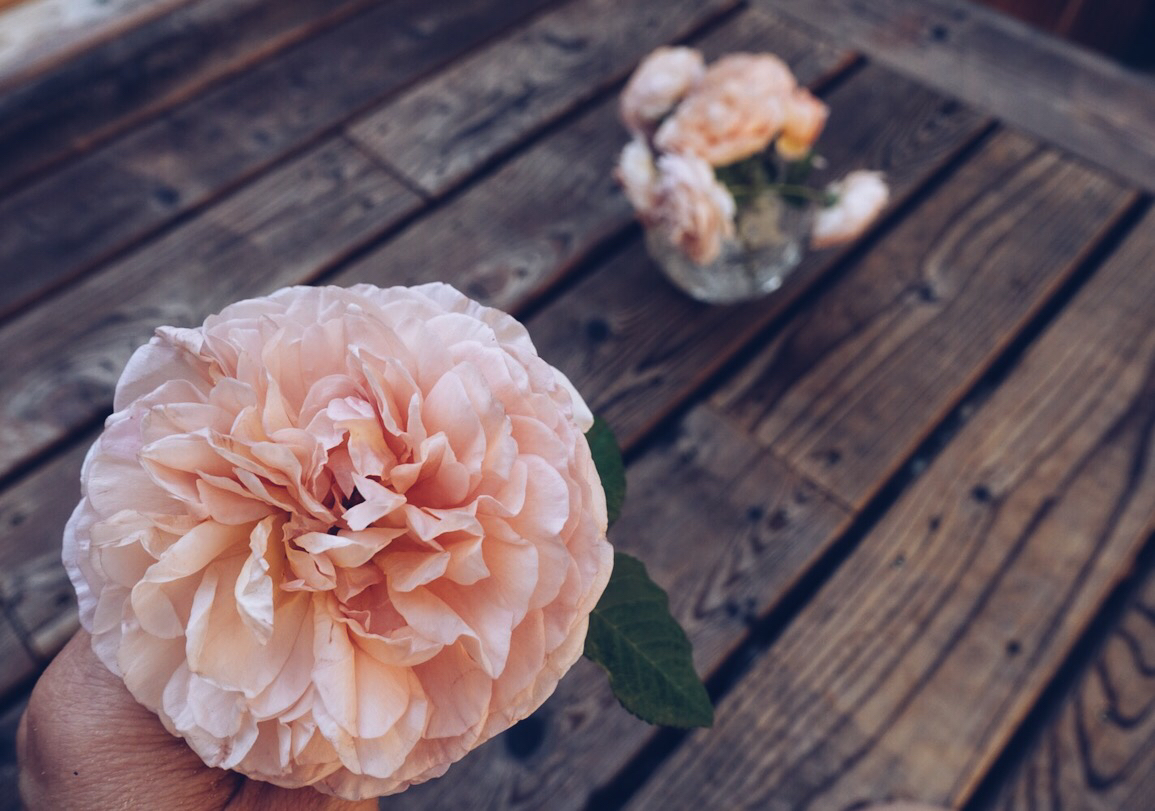A few months ago I pulled out my journal and wrote: I’m changing my life. I’m not even sure I knew what I meant when I wrote it, I knew it didn’t mean anything earth-shattering, but I could sense a shift coming. Every once in a while things just click into place and you find yourself moved from one space to the next. Around that time I got rid of my smartphone. (Best decision I ever made, truly.) Since then, a friend and I started working our way through The Well-Educated Mind. I really committed to running. I recalibrated my writing goals to make them both more consistent and more manageable. I started outlining a new novel. I let go of some restrictions I’d put on myself that weren’t serving a good purpose. I got rid of time wasters (like watching Netflix/movies at home) that were cluttering my creative process. I started working on projects I’ve been procrastinating for years. Somehow, without thinking too much about it, I really did start changing my life.
*
For our anniversary, we rented a house overlooking a tidal bay on Puget Sound. In the mornings, the sun shone off the water and osprey circled overhead, cormorants rode the low air streams. Later in the day, the tide lifted its skirts and left a mudflat behind. The herons moved in, dozens of them, joint and feather, long gray necks snaking into the silt to find clams, a luckless fish. We made coffee on the stovetop, dark and gritty, sat by the big windows watching their strange high step across the muddy plain in fascination. Hour after hour, water returned, the herons waded, their long legs disappearing inch by inch until they lifted their wings and fled. The low lands filled in, the flat became a stream again, a river.
On the second day we slipped our kayaks into the high tide and paddled toward the ocean. The air was scented with brine and rot, that particular tang of the sea. Jelly fish floated around us, yellow, orange, a skirt of white – giant eggs poaching under the surface. I have a bit of thalassaphobia. (I came to kayaking partly to confront that fear.) So while my husband was delighted, I thought, oh my god, if jellyfish, what else is under there? That’s all it took for the panic to rise up.
The value of being afraid in a kayak over a body of water is there’s nowhere to run. I had to force my mind to reason, force my arms to paddle, my breath to slow. It wasn’t long before the anxiety had passed and I had gained that small accomplishment, the vanquishing of a fear, to take with me for good. It occurred to me later, tucked back into the house, scrubbed of sea salt and sweat, that changing your life in any way at all hinges on facing down fears. (As a perfectionist, my fear often involves failure. Better to never start something at all than to do a poor job, or to quit midway.) You have to take yourself in hand and risk it.
Sometimes changing our lives though, is really about changing our thinking. I turned 47 this month, and the last of our kids graduated high school in May. Cue midlife angst. Halfway through your life the doors start closing. For almost five decades I have made choices, traveled a path, and that creates natural limits. For example, it doesn’t really make sense for me to go for that college degree at this point (too much money when I’m already doing what I love and don’t plan to change it.) And there are other things – big things I thought I wanted earlier in my life that are unlikely to happen now. There’s fear involved with shutting those doors – will I get to my deathbed and regret? (Probably not.) But I’ve been working on facing those insecurities, redefining the idea of “success”, changing my language, being confident in the direction I have chosen for myself. It takes just as much intentional work to do that as it did to paddle through a bay of jellyfish
.I’m someone who believes fully in the value of a small and focused life. It’s a constant challenge to own that in a big, splashy, motion-forward culture. I keep refining, letting go of the things that tangle me up, make me feel inadequate. Some of those are outward things – the smartphone, social media, the television – but there’s an equal amount of self-talk, intangible expectations, perfectionism, and discontent that trap too. If I’ve made a goal for 47 it’s to deal honestly with the interior struggles as well as the outer struggles.
June 19, 2018: I’m changing my life. (Ongoing.)













